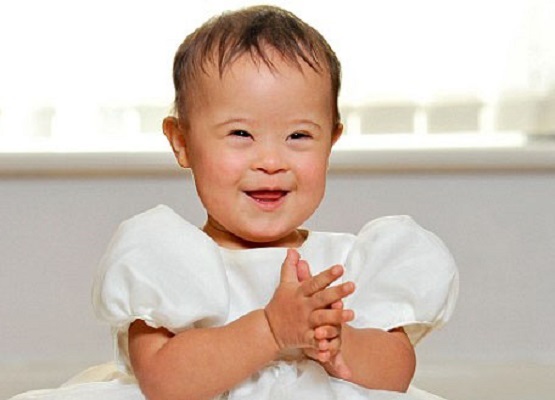In an effort to stop discrimination-based abortions, a group of U.S. senators introduced a bill this week to prohibit abortions on unborn babies with Down syndrome.
The Down Syndrome Discrimination by Abortion Prohibition Act follows the lead of several states, which already have legislation in place to protect unborn babies with disabilities from being discriminated against through abortion.
“Every life has value and that extends to the unborn,” said U.S. Sen. Jim Inhofe, an Oklahoma Republican who is sponsoring the bill. “To take away the precious life of an unborn baby is murder, but to deny a child the chance at life because of his or her chromosome count is a heinous effort to eliminate a vibrant community through abortion.”
KTUL News 8 reports the bill would ban abortions if the reason is because an unborn child has been diagnosed with Down syndrome. Abortionists who violate the law could face fines or imprisonment for up to five years.
Unborn babies with Down syndrome are among the most discriminated against in society today. Research in the United States and Europe puts abortions of unborn babies with Down syndrome at anywhere from 30 percent to 90-plus percent after a positive test. In Iceland, the rate of abortion after a Down syndrome diagnosis is nearly 100 percent.
Arkansas Sen. Tom Cotton, a co-sponsor of the legislation, said more parents are learning that their baby may have Down syndrome because of the growing prevalence of prenatal screening tests.
SUPPORT LIFENEWS! If you like this pro-life article, please help LifeNews.com with a donation!
“Babies with disabilities deserve our love and protection. But sadly, many of these babies don’t even get a chance at life. Protecting unborn babies diagnosed with Down syndrome moves us closer to a society that respects life in all forms and all stages,” Cotton said.
Officials with National Right to Life told LifeNews.com that the organization strongly supports the legislation.
“National Right to Life is grateful for the leadership of Senator Inhofe and Congressman Estes in protecting children who do not deserve to die because they have an extra chromosome,” stated Carol Tobias, president of National Right to Life. “An unborn child deserves the same protections as any other American who is protected by the Americans with Disabilities Act.”
Tobias told LifeNews that parents of unborn children diagnosed with Down syndrome are often encouraged to have an abortion. It is estimated that, in the U.S., the abortion rate of children diagnosed in utero is approximately 67%. Other countries, such as Iceland, have abortion rates up to 100% for unborn children diagnosed with Down syndrome.
“October is Down Syndrome Awareness Month and, appropriately, this legislation protects the right to life of individuals who have been diagnosed with Down syndrome,” stated Tobias. “Every person, regardless of ability or whether she is born or unborn, should be accepted in life and protected by law.”
The legislation will make it illegal for a doctor to perform an abortion because an unborn child has been diagnosed with Down syndrome or is suspected of having Down syndrome. The legislation also prevents a woman from being forced to have an abortion because her unborn child has been diagnosed with Down syndrome. The legislation includes penalties for doctors who violate the legislation with judgments including fines and/or imprisonment for up to five years. Mothers are not subject to prosecution or penalties of any kind.
Parents sometimes feel pressured to abort an unborn baby after receiving a poor prenatal diagnosis as well. Rebecca Kelly, the mother of a child with Down syndrome, surveyed 58 women who chose life for their babies with Down syndrome, Australia Daily Mail reports. According to her survey, 60 percent of the women reported the Down syndrome diagnosis was portrayed to them in “negative language.” In the cases where women refused abortion, the survey found that two-thirds of the women said they were asked about abortion again, and one-fifth said they were frequently asked to reconsider abortion.
Eight states have passed similar legislation: Indiana, Ohio, North Dakota, Louisiana, Kentucky, Missouri, Arkansas and Utah; however, many of the laws are not being enforced due to legal challenges, according to KTUL.
In May, the U.S. Supreme Court refused to hear an appeal of the Indiana law; however, Justice Clarence Thomas wrote a strong opinion urging the high court to take up a similar case in the future.
“… this law and other laws like it promote a State’s compelling interest in preventing abortion from becoming a tool of modern-day eugenics,” Thomas wrote. “Although the Court declines to wade into these issues today, we cannot avoid them forever. Having created the constitutional right to an abortion, this Court is dutybound to address its scope.”
The other sponsors of the federal bill are Sens. Steve Daines (R-Montana), James Lankford (R-Oklahoma), Rick Scott (R-Florida), James Risch (R-Idaho), Mike Braun (R-Indiana), Joni Ernst (R-Iowa), Cindy Hyde-Smith (R-Mississippi), Kevin Cramer (R-North Dakota), John Hoeven (R-North Dakota), John Thune (South Dakota), Mike Rounds (R-South Dakota) and Marsha Blackburn (R-Tennessee). U.S. Rep. Ron Estes, a Kansas Republican, introduced companion legislation in the U.S. House.








